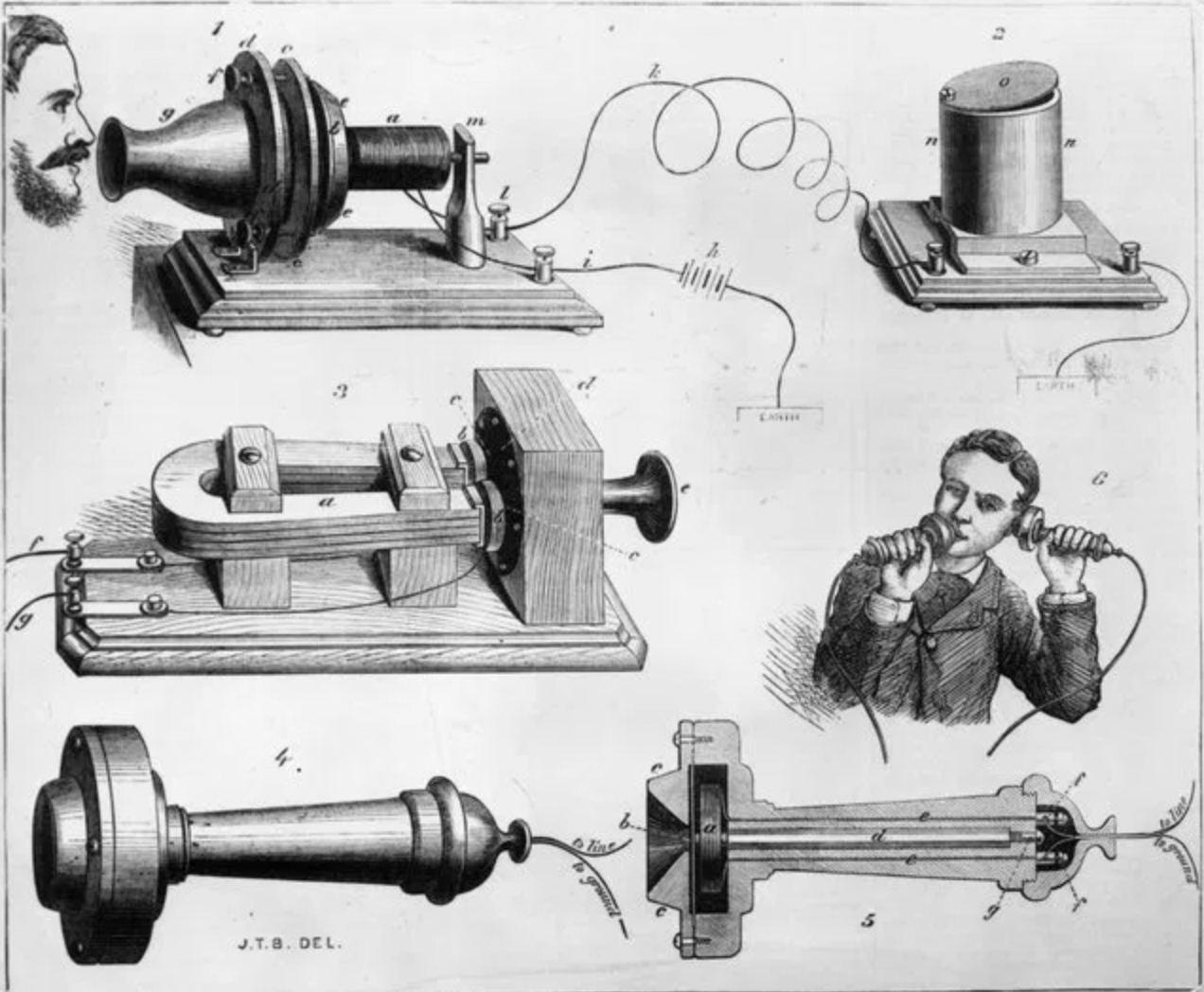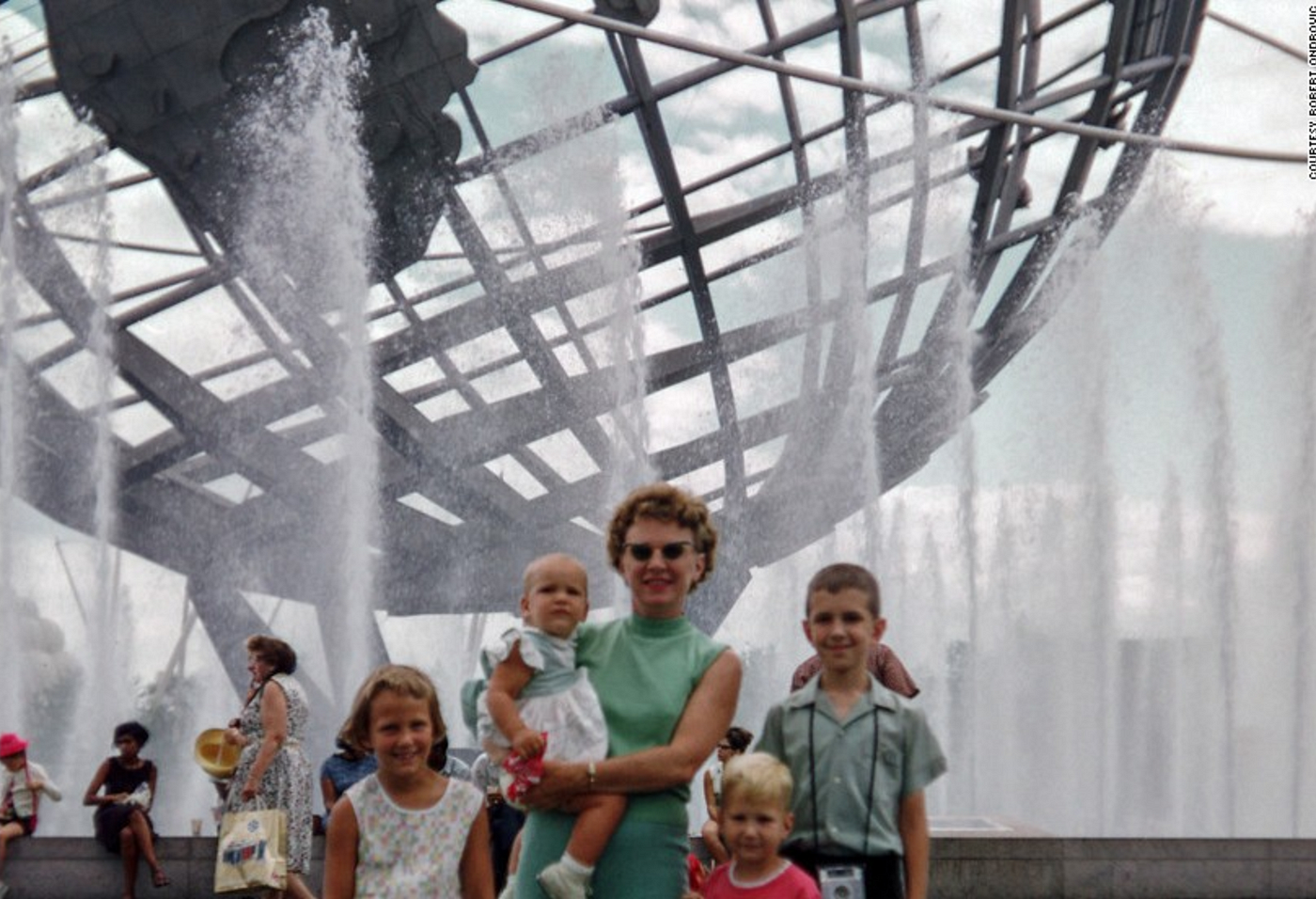When Did They Start Having a World Fair Again
The End of the World's Fair
Or, why don't we get together equally a globe anymore?
by Jason Gingold

In 1962, Seattle hosted the Globe'south Fair. It was a tribute to Century 21; a moment in time capturing the global obsession with the space race. Its themes were of the big, vivid, optimistic ilk — Future Vision, Modernistic Scientific discipline, and Space Exploration. It brought a reputation to Seattle equally the urban center of tomorrow, an aerospace force, a technology mecca; a reputation that nevertheless holds virtually lx years later.
Perhaps most strikingly, the 1962 Globe's Fair brought this metropolis its singular icon, the Space Needle. I accept the privilege in my part as the Caput of Strategy at Hornall Anderson to work with the Space Needle equally a client, as dramatic adjacent-generation renovations are at present underway, and so my indicate of view is perhaps semi-skewed. Notwithstanding, the magic of the Space Needle has always been its feminine construction, an architectural marvel equal parts spaceship, hourglass, and spire reaching through the clouds to the unknown. Despite all the recent and ongoing structure and massive changes in Seattle's contemporary architectural landscape, which includes Amazon's Spheres, the Public Library designed by Rem Koolhaas and Joshua Prince-Ramus, and even the Frank Gehry MoPOP, it is the Space Needle which remains the defining epitome of this urban center.
Lest the reader recall this is a tribute to a pioneering landmark, always since a conversation years ago with a vivid friend, I have get fascinated by the event that spurred the building of the Space Needle. Globe'due south Fairs were elaborate gatherings of people from all walks of life, from all over the earth, all seeking a glimpse of the time to come. They were equal parts inspiration and innovation; scientific discipline fair meets scientific discipline fiction. I have lately wondered, "Why don't we accept Globe's Fairs anymore?"
The short reply is that we do. They now go past the proper noun "Expos" (brusque for Expositions) and take place every 2 to three years. But they are rarely publicized, and their discoveries and innovations are of a smaller scale than the legendary moments of Earth's Fairs past. Gone from the contempo public record are astonishments like the phone, the monorail, the zeppelin, and mainframe computers. The innovations that have been touted in the Expos since 2000 are hardly seismic. The achievements and innovations that make up the legacy of Shanghai (the largest Expo of the by 50 years) are largely techniques and best practices for more sustainable urban living, and a summary certificate published by the Bureau International des Expositions (BIE, the governing body in charge of World's Fairs) known as the Shanghai Announcement, a listing (more or less) of the aforementioned practices and beliefs.
There is a fine line of stardom to exist made hither between important outcomes and meaning outcomes. It would exist difficult to argue that the Shanghai Annunciation isn't important — information technology is, very much so. Learning how to ameliorate urban living is critical to our survival. But a pdf as the nifty legacy of a global consequence is missing weight, and touch on; the staples of significance. When people saw the phone in 1876, aught like it had been conceived of earlier. The same could be said of the gas-powered car, controlled flight, diminutive energy, and heck, even the ice cream cone.

Perhaps that'south revisionist history. Perhaps the globe will expect back and attribute greater significance to a panel discussion from Yesou 2012, or a model made of bubble-sand from Zaragosa in 2008. And I say that genuinely. Time and perspective have a funny way of creating importance. They besides have a way of erasing moments of the trivial. We shall see.
The longer answer is that, even though the world continues to have Expositions, they barely annals as the massive global events they are, and they simply don't go out a dent on culture the style they ought to. And this is the fascinating part to me — the earth is missing out on the opportunity to solve massive challenges, to wonder together about what might be, to gather with hope and just the right touch of naiveté in the spirit of 'what if,' and, to inspire transformative modify from its most creative and visionary citizens.
So why? Why are we no longer interested or capable of creating the kind of spectacle that the plough of the 20th century saw?
I offering up that the reasons tin exist broken downwards into a series of societal shifts. And while the themes below help explain the ebb of Globe's Fairs, they experience important enough that businesses should take heed of the lessons, to prevent extinction through inconsequentiality.
one) FADING Ambition
The World'southward Fair has undergone some evolution. In their early years, 1851 through 1938, they were about technological invention and advancement. This was the World's Off-white's era of Industrialization, showcasing diesel fuel engines, outdoor electrical lighting, elevators, escalators, and talking films. The next iteration of the World'southward Fair came in the mid-20th century, a move from Industrialization to Cultural themes. This is all-time represented past the New York World's Fair of 1939 and its premise of "Edifice the World of Tomorrow," or the return to New York in 1964, and that year's theme, "Peace Through Understanding." These were cultural fairs, looking at massive systemic changes rather than primarily focusing on technological innovation.

So what happened? Well, the next shift moved abroad from universal themes, and became an exercise in promoting the host nation. A study of Expo 2000 revealed that 73% of nations involved cited "improving national image" as their chief reason for participating. There was also a thematic shift at play away from broader cultural themes and into ecology ones (e.thou. Expo 2022 in Milan, Italy on "Feeding the planet, energy for life" and Expo 2022 in Astana, Kazakhstan looking at "Future Energy"). This makes sense given the context of the globe's problems, just probably played a role in diminishing interest, every bit unfortunately, there is dwindling universal enthusiasm, or mayhap fifty-fifty animosity from some factions of the United States, in working collaboratively to accost these problems and ideas.
two) ZEITGEIST CREATOR TO ZEITGEIST VICTIM
One of the more obvious shifts is the advent of the internet, cell phones, and social media. Every bit nosotros all deport phones in our pockets, each with a acme-of-the-line camera and the ways to send images, thoughts, videos, and sketches effectually the globe in the flick of a thumb, we've all become content creators and broadcasters. And the on-need civilization we live in means we tin can check the news, or our feeds, or what'south "trending" at whatever moment and then once again a moment afterwards.

This ways there is no demand for a giant gathering to tell us what's coming side by side. Nosotros just need to find the right network or influencer to follow, and we'll get what nosotros need. Information technology would be interesting to see a modify from the BIE that took into business relationship citizen dissemination and harnessed that power in some constructive way. Or a renaissance of the original spirit back to "Building a globe of tomorrow" that wasn't streamed or alive-tweeted, but could but be experienced firsthand. At that place has to exist a better mode. Merely for now, there's simply no urgent need to participate.
iii) PURSUIT OF THE INVISIBLE
Related to the rise of ubiquitous technologies is a societal shift away from the valuing of physical objects to the valuing of intangible things — processes, applications, services, ideas. Gimmicky order has swung its great pendulum away from the mentality of "what tin we do" as a collective, to "what tin I do" on my estimator/device.

This works on ii levels. Firstly, there's the fact that we no longer need, seek, or build large-scale exhibits or innovations (with some exceptions of course). There is no place for them, nor are they critical to hereafter evolution the way they were in the Industrial era (somewhere Daniel Burnham is rolling in his grave). Secondly, the movement from public to personal takes away a primal element of Earth'south Fairs, chiefly, the dependence on a mass gathering to get things done. Our focus is on modest, even invisible signs of progress, and we tend to admire and celebrate those who display tremendous individual discipline and accomplishment.
That said, all evidential reporting on the next ii generations suggests that the pendulum may be shifting back to empowering mass movements and action. And certainly, within the past few years, the globe has seen a lot more than collaboration, gathering, and public displays of common cause than it has in the preceding two decades.
4) THE NEVERENDING Result Circuit
We have TED now. And CES. And Microsoft Ignite. For a while there was SXSW, before it became a boondoggle to corporate-sponsorville. And the list of corporate events, conventions, and conferences goes on and on. The world has learned to gather annually, in likeminded groups, eliminating the demand for a large-scale, come-1-come up-all model to exist. In that location is no longer any incentive for people to pack their kids in the car and drive hundreds of miles for an in-person viewing.

Nosotros can at present participate in weekly or monthly local events and gatherings. And they're dandy. There'southward content and conversation to be had at all of them. I am equally likely to find fascination at my local meet-upward equally I am at 10 times the cost at an Eastern European Expo. I can lookout man all the TED Talks I desire in the condolement of my cubicle or I can pay up of $10,000 for the gamble to gather with other upper/middle managers to nourish breakout sessions built around well-crafted jargon. While the world has gotten better connected, the opportunities for localized and smaller, more intentional gatherings take become normalized.
But please allow me to climb down from my high horse for a infinitesimal to ponder where that leaves united states.
The world has shifted in multiple ways — societal, cultural, technological, and modular. My fascination with World's Fairs will probably not dice downward. In their heyday, they represented a series of tremendous moments of imagination, possibility, progress, and wonder. And yet, I can't assist thinking that the blueprint is out there to pattern them back into relevance for tomorrow's audiences. We simply need to inspire those willing to try something new to modify our world again.
Update: We've moved our web log from Medium to the Hornall Anderson website. Click here to see our latest perspectives.
jamisonwouturairim.blogspot.com
Source: https://medium.com/ha-perspectives/the-end-of-the-worlds-fair-2299cc0d2930
0 Response to "When Did They Start Having a World Fair Again"
Post a Comment